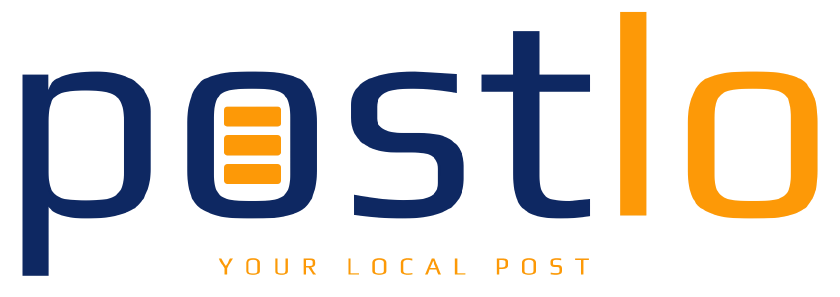- Images
Digital marketing has fundamentally changed how businesses communicate with their audiences. As technology evolves and consumer habits shift, mastering digital marketing is no longer optional—it’s a necessity. Whether you’re a young professional exploring career opportunities, a business owner expanding your reach, or a startup looking to disrupt the market, digital marketing is your gateway to success.
What is Digital Marketing?
Digital marketing encompasses promoting products or services using online platforms. It includes strategies such as search engine optimization (SEO), social media marketing, email campaigns, and pay-per-click advertising (PPC). Unlike traditional marketing methods, digital marketing provides real-time data, targeted outreach, and cost-effective solutions.
Key Components of Digital Marketing
1. Search Engine Optimization (SEO)
SEO is vital for driving organic traffic. It involves optimizing your website and content to rank higher on search engines like Google. Effective SEO practices include keyword research, on-page optimization, technical improvements, and link building.
2. Content Marketing
Content marketing is about providing value. From blog posts and videos to infographics and eBooks, high-quality content builds trust and engages audiences without directly selling.
3. Social Media Marketing
Platforms like Instagram, LinkedIn, and TikTok are ideal for connecting with your target audience. Social media marketing involves creating engaging posts, running ad campaigns, and collaborating with influencers.
4. Pay-Per-Click Advertising (PPC)
With PPC campaigns on platforms like Google Ads, businesses can drive instant traffic. These ads allow precise targeting based on demographics, location, and user behavior.
5. Email Marketing
Email marketing remains one of the most effective channels for nurturing leads and building customer loyalty. Personalized campaigns tailored to your audience can significantly boost conversions.
6. Analytics and Reporting
Data is at the core of digital marketing. Tools like Google Analytics help track campaign performance, audience behavior, and ROI, enabling you to refine strategies.
7. Video Marketing
Videos are highly engaging and versatile. Platforms like YouTube and Instagram Reels are excellent for sharing tutorials, product demos, and brand stories.
8. Influencer Partnerships
Working with influencers can enhance credibility and extend your reach. Choose influencers whose values align with your brand for maximum impact.
The Future of Digital Marketing
Digital marketing is constantly evolving. Here are the emerging trends shaping its future:
Artificial Intelligence (AI): From content creation to chatbots, AI is transforming digital marketing by enabling hyper-personalization and efficiency.
Voice Search Optimization: With the rise of virtual assistants, optimizing for voice queries is crucial.
Augmented Reality (AR): AR is enhancing user experiences by blending digital elements with the real world.
Sustainability Messaging: Consumers increasingly favor brands with sustainable practices. Highlighting eco-friendly initiatives will become essential.
Data Privacy: Transparent and ethical use of customer data will define trustworthy brands.
Blockchain in Advertising: Blockchain technology ensures secure and transparent ad transactions, reducing fraud.
Benefits of Digital Marketing for Different Audiences
For Youths:
Digital marketing offers abundant career opportunities. Whether you specialize in SEO, social media, or analytics, the field promises dynamic roles and competitive salaries.
For Business Owners:
Small businesses can compete with industry giants by leveraging digital marketing. It provides cost-effective ways to reach targeted audiences and build brand loyalty.
For Startups:
Startups can achieve rapid growth through digital channels. Strategies like influencer marketing, email campaigns, and PPC ads help create awareness and attract early adopters.
How to Choose the Right Digital Marketing Agency
Partnering with the right agency is critical for success. Here’s how to make the best choice:
Industry Experience: Look for agencies with proven expertise in your niche.
Portfolio and Results: Review their case studies and past campaigns.
Transparency: Ensure they provide regular updates and detailed reports.
Custom Strategies: Avoid agencies offering generic solutions.
Client Reviews: Check testimonials and online ratings.
Budget Alignment: Choose an agency that fits your financial goals without compromising quality.
Success Stories
Case Study 1: Bakery Boosts Sales by 250% with Local SEO
A small bakery in Bangalore partnered with a digital agency to enhance its online visibility. By focusing on local SEO and running targeted social media ads, the bakery achieved a 250% increase in foot traffic and sales within three months.
Case Study 2: SaaS Firm Gains 4X ROI Through Content Marketing
A SaaS startup used a combination of blog articles, webinars, and LinkedIn campaigns to attract B2B clients. Their targeted content strategy resulted in a 4X return on investment within a year.
FAQs About Digital Marketing
Q1: How much does digital marketing cost? The cost depends on the scale and goals of the campaign. Monthly budgets can range from a few thousand to several lakhs.
Q2: When can I expect results? While SEO takes time (3-6 months), PPC and social media campaigns can yield immediate outcomes.
Q3: Can I manage digital marketing myself? Yes, but it requires knowledge and consistent effort. Partnering with professionals often delivers better and faster results.
Q4: Is digital marketing suitable for small businesses? Absolutely! Digital marketing levels the playing field, allowing small businesses to reach wider audiences.
Q5: What skills are essential for digital marketing? Key skills include SEO, content creation, data analysis, social media management, and paid advertising expertise.
Conclusion
Digital marketing is the cornerstone of modern business success. It empowers brands to connect with their audience, drive growth, and achieve their goals. Whether you’re a professional exploring this exciting field, a business owner scaling operations, or a startup aiming to disrupt your industry, digital marketing has endless possibilities.
Take the leap today, embrace emerging trends, and leverage the power of digital marketing to transform your vision into reality.







